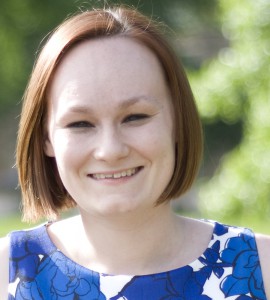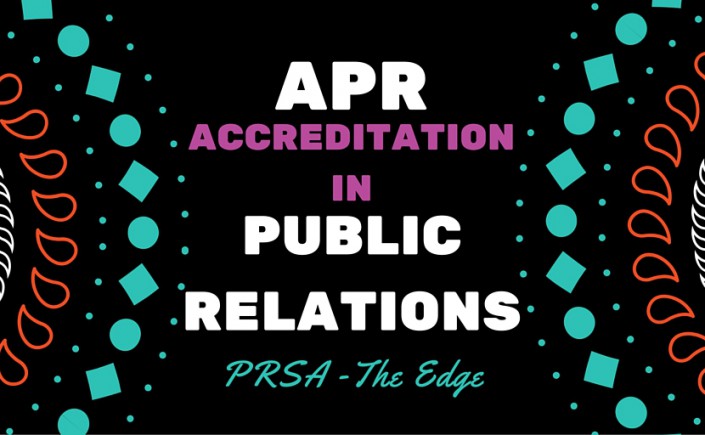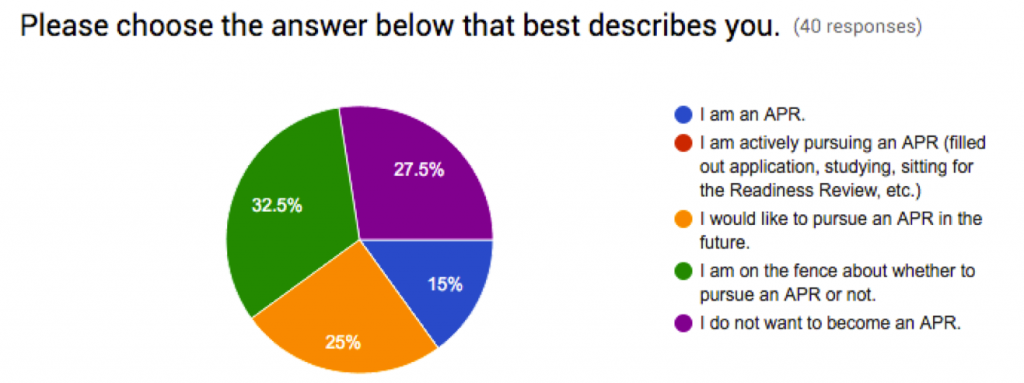Continuing education should be a focal point of every professional’s long-term career plan, but especially for PR pros. Working in an industry that is constantly changing requires lifelong dedication to learning, professional development and adapting. It’s not enough to graduate from college with a degree and to have done well in your coursework; continuing your education past graduation is necessary to be a successful PR professional.
There are plenty of ways to keep appraised of new trends, tools, practices and theories within the industry. Many websites and professional organizations, like Hubspot, PRSA, Skillshare, the American Marketing Association, and Ragan Communications, offer online courses and training opportunities on a wide range of topics. You can become certified in inbound marketing, Google Adwords and Analytics, social media marketing or a number of other skills in a matter of days or weeks. Then, of course, there’s the APR — or Accreditation in Public Relations.
Administered by the Universal Accreditation Board, the APR is a designed to “unify and advance the public relations profession by identifying those who have demonstrated a broad knowledge, experience and professional judgement in the field,” according to the UAB’s website. Professionals who sit for the APR exam must have at least five years of professional experience and a bachelor’s degree or higher. Once you become an APR, you’re required to earn 10 maintenance points every three years to remain an APR. Activities that earn maintenance points include professional development courses, teach, mentor, volunteer, serve in a leadership position, publish a book, and more. Five of the points must be in continuing education and professional development.
There are plenty of arguments out there for and against becoming accredited. Some say that the APR has no value and is just a gimmick to get members to spend more money on courses and memberships to remain accredited. Others say that becoming accredited is the best thing they’ve done for their career and understanding of the profession.
Conflicting opinions from respected professionals inspired my deeper survey into how PR practitioners of all experience levels feel about the APR. Using Twitter and email outreach, I gathered 40 responses to a survey I created to gauge feelings toward the APR. The breakdown of respondents looks like this:
Fifty-one percent of responses showed neutral to negative attitudes toward the APR. Ten respondents were either completely on the fence about becoming an APR or leaning against becoming an APR. Eleven respondents are firmly against becoming an APR.
Of the remaining responses, six professionals had become accredited and 10 were planning to pursue an APR. The three remaining responders were on the fence, but leaning towards pursuing an APR.
Those who were not planning to become accredited cited a lack of value as their main reason not to pursue it. A common sentiment was that, given the way PR and marketing have fused and that PR is no longer strictly publicity- and media relations-based, the APR may be a bit antiquated and not quite relevant to today’s professionals.
One account executive from New Jersey pointed out, “I think it may be more beneficial in a strictly-PR career. For example, leading a large agency or working in-house. I also noticed that many of my professors in undergrad had an APR title. It seemed a bit “old school” to many of my colleagues, and I don’t see it much in the professional world of marketing.”
“I took the test a few years back and didn’t feel it truly represented where the field and professionals are in today’s world,” said the president of a Washington, D.C.-based communications firm.
According to a vice president of PR at an agency in Pittsburgh, “[I decided not to pursue an APR] A few years ago when literally everyone I spoke to in a marketing role had no idea what it was and the fact that many senior PR executives actively said it wasn’t worth it. There is no discernible value to it outside of PRSA and intrinsic personal development. No one knows what it is or why they should care.”
From the information I’ve gathered, the biggest hurdle to becoming an APR is in understanding what, if any, value there is. Many people surveyed felt that there weren’t enough career benefits to justify the time, effort and cost of the APR, especially since it’s not just a one-time investment. According to those professionals who were already APRs, there aren’t necessarily immediate or highly noticeable career benefits. The benefits are primarily personal and in the form of resources, networking and personal accomplishment.
“I think the biggest problem with APR is that many in the field are skeptical of what it can and should do. They point to the lack of rigor in the criteria and say it’s not like becoming a CPA, passing the Bar, or earning a CFP,” said a Pittsburgh APR with 31 years of experience. “They miss the point. In communications, we are free to communicate without license and that’s a good thing. But accreditation is only designed to demonstrate that the individual takes personal pride in his or her commitment to professionalism. Is committed to the code of ethics. And that a third-party (PRSA) has testified to this.”
The 10 responders who said they plan to pursue an APR pointed to a deeper understanding of the profession and validation, credibility and proof of skill as the benefits of the APR. Seven of the 10 professionals plan to begin the APR process in the next five years, while two plan to begin the process in the next year.
So should New Pros consider becoming an APR? Sure, we should consider it. We should have many conversations with other pros of all levels and experiences about it. When it comes down to whether to actually do it, that’s a personal decision.
When I started researching for this post, I thought I had made up my mind that I would become an APR once I had enough experience under my belt. After hearing thoughts from professionals on both ends of the spectrum, I’m not so sure. From my research, I’m not the only New Pro who’s a bit undecided. Seventeen New Pro-level practitioners completed this survey; nine are on the fence about the APR, three are uninterested and five would like to pursue one in the future.
There are so many options out there for professional development that an APR is just one of many options for New Pros to continue to grow over the course of their careers. Since professional development needs to be incredibly personalized, there is no one-size-fits-all formula for what the best options are. The best thing for any New Pro is to weigh all of your options – APR vs. graduate degree, extra courses vs. webinars, etc. – and strike up a conversation with as many other PR pros as you can to bounce ideas around, learn new things and find what might work best for you.

Robyn Rudish-Laning is a member of South Carolina’s PRSA chapter and is communications coordinator for the South Carolina Council on Competitiveness. Robyn is also a member of the New Professionals executive committee. She is a graduate of Duquesne University and is currently located in Columbia, SC. You can connect with her on LinkedIn or Twitter or read her blog here.


